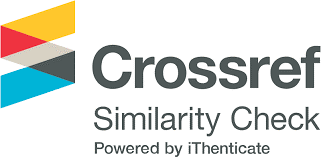Power-Based Control with Feed-forward Disturbance Rejection for Battery-Assisted Quasi-Impedance Source Converter in Photovoltaic Systems
DOI:
https://doi.org/10.18618/REP.e202534Keywords:
Battery energy storage, photovoltaic generation, power-based control, quasi-impedance source converterAbstract
This work presents an enhanced power-based control technique for controlling the battery current in a quasi-impedance source converter (qZSC) topology with a feed-forward control loop in order to improve disturbance rejection. Such topology can integrate a photovoltaic array and a battery storage system (BSS) using a single inverter bridge. However, the control strategies for managing the energy stored in the battery for this topology are vulnerable to disturbances in the photovoltaic power and have a high level of complexity, especially in terms of mathematical modeling. Therefore, the proposed control method aims to improve this functionality by implementing a cascade control based on the active power between the qZSC and the grid. Therefore, the dynamic model relating the battery current and the qZSC active power output will be demonstrated, as well as the respective closed-loop controller design. The simulation and control hardware-in-the-loop (C-HIL) results demonstrate the effectiveness of the proposed modeling and control technique.
Downloads
References
R. M. de Souza, F. J. P. Ferreira, A. S. Neto, R. C. Neto, F. A. S. Neves, J. F. C. Castro, “An Analysis of the Limitations of Power Smoothing Metrics and Future Perspectives for Their Evolution in the Context of BESS-Based Systems”, Eletrônica de Potência, vol. 29, p. e202423, Aug. 2024. DOI: https://doi.org/10.18618/REP.2005.2.017021
Fang Zheng Peng, “Z-source inverter”, IEEE Transactions on Industry Applications, vol. 39, no. 2, pp. 504–510, 2003. DOI: https://doi.org/10.1109/TIA.2003.808920
J. Anderson, F. Peng, “Four quasi-Z-Source inverters”, in 2008 IEEE Power Electronics Specialists Conference, pp. 2743–2749, June 2008. DOI: https://doi.org/10.1109/PESC.2008.4592360
M. M. Haque, P. J. Wolfs, S. Alahakoon, M. A. Islam, M. Nadarajah, F. Zare, O. Farrok, “Three-Port Converters for Energy Conversion of PV-BES Integrated Systems—A Review”, IEEE Access, vol. 11, pp. 6551–6573, 2023. DOI: https://doi.org/10.1109/ACCESS.2023.3235924
B. Ge, H. Abu-Rub, F. Z. Peng, Q. Lei, A. T. De Almeida, F. J. Ferreira, D. Sun, Y. Liu, “An energy-stored quasi-Z-source inverter for application to photovoltaic power system”, IEEE Transactions on Industrial Electronics, vol. 60, no. 10, pp. 4468–4481, 2013. DOI: https://doi.org/10.1109/TIE.2012.2217711
S. Agrawal, B. Tyagi, V. Kumar, P. Sharma, “Digital Controller Design and Implementation for AC and DC Side of 3ph qZSI”, IEEE Transactions on Industry Applications, vol. 60, no. 1, pp. 672–683, 2024. DOI: https://doi.org/10.1109/TIA.2023.3320120
A. Lashab, D. Sera, J. Martins, J. M. Guerrero, “Model Predictive-Based Direct Battery Control in PV Fed Quasi Z-Source Inverters”, in 2018 5th International Symposium on Environment-Friendly Energies and Applications (EFEA), pp. 1–6, IEEE, 9 2018. DOI: https://doi.org/10.1109/EFEA.2018.8617084
J. Khajesalehi, K. Sheshyekani, M. Hamzeh, E. Afjei, “High-performance hybrid photovoltaic -battery system based on quasi-Z-source inverter: Application in microgrids”, IET Generation, Transmission and Distribution, vol. 9, no. 10, pp. 895–902, 2015. DOI: https://doi.org/10.1049/iet-gtd.2014.0336
S. Hu, Z. Liang, X. He, “Research on the Dynamic Characteristics and Regulation Method of the Energy Stored Quasi-Z-Source Inverter System”, IEEE Transactions on Industrial Electronics, vol. 67, no. 6, pp. 4590–4599, 2020. DOI: https://doi.org/10.1109/TIE.2019.2931244
M. S. Neves, L. G. B. Rolim, “A Power-Based Control Approach for a Battery-Assisted Quasi-Impedance-Source Converter Applied in Photovoltaic Systems”, in 2023 IEEE 8th Southern Power Electronics Conference and 17th Brazilian Power Electronics Conference (SPEC/COBEP), pp. 1–8, 2023. DOI: https://doi.org/10.1109/SPEC56436.2023.10407363
S. Xia, J. Xu, L. Guo, S. Li, H. Guo, “Real-Time Modeling Method for Large-Scale Photovoltaic Power Stations Using Nested Fast and Simultaneous Solution”, IEEE Transactions on Industrial Electronics, vol. 72, no. 3, pp. 2679–2689, 2025. DOI: https://doi.org/10.1109/TIE.2024.3440469
W. Liu, Y. Pan, Y. Yang, “Small-Signal Modeling and Dynamic Analysis of the Quasi-Z-Source Converter”, in IECON 2019 - 45th Annual Conference of the IEEE Industrial Electronics Society, pp. 5039–5044, IEEE, oct 2019. DOI: https://doi.org/10.1109/IECON.2019.8927359
B. Mondal, A. K. B, “Analysis of Inverter Output Current Ripple and Design of Inverter-Side Output Filter Inductor for Grid Connected Applications”, IEEE Transactions on Industry Applications, vol. 61, no. 1, pp. 686–702, 2025. DOI: https://doi.org/10.1109/TIA.2024.3481396
M. Wicke, T. Bocklisch, “Hierarchical Energy Management of Hybrid Battery Storage Systems for PV Capacity Firming and Spot Market Trading Considering Degradation Costs”, IEEE Access, vol. 12, pp. 52669–52686, 2024. DOI: https://doi.org/10.1109/ACCESS.2024.3387748
J. Mascarenhas, M. d. S. Neves, B. Figueiredo, L. G. B. Rolim, “Implementation of Simple Boost Control Pulse Width Modulation for a Two-Level Three-Phase Quasi-Impedance Source Converter”, in XXV Congresso Brasileiro de Autom´atica, Oct 2024, Available in: https://www.sba.org.br/cba2024/papers/paper 5490.pdf.
J. Liu, Y. Xia, W. Wei, Q. Feng, P. Yang, “Effect of Control Damping on Small-Signal Stability of Grid-Forming VSCs Considering Interaction Between Inner and Outer Loops”, IEEE Transactions on Power Electronics, vol. 39, no. 6, pp. 7685–7695, 2024. DOI: https://doi.org/10.1109/TPEL.2024.3381148
“Core couplings - Ideal Transformer — typhoon-hil.com”, https://www.typhoon-hil.com/documentation/typhoon-hil-software-manual/References/corecouplingsIT.html, [Accessed 04-03-2025].
H. Akagi, E. H. Watanabe, M. Aredes, Instantaneous power theory and applications to power conditioning, John Wiley & Sons, 2017. DOI: https://doi.org/10.1002/9781119307181
Downloads
Published
How to Cite
Issue
Section
License
Copyright (c) 2025 Marcello S. Neves, Luís G. B. Rolim, Laís F. Crispino, Leonardo F. da Silva

This work is licensed under a Creative Commons Attribution 4.0 International License.















